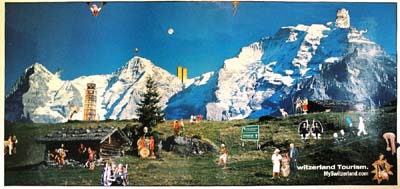WORLD: Switzerland Among Countries who do not Check if Passports are Stolen
LYON, France - Despite heightened terror alerts around the world, people traveling on stolen passports continue to slip across international borders because few countries check to see if incoming passports are among those known to be missing, says Interpol, the international police organization based here.
For example, Milorad Ulemek, believed to have ordered the assassination of Prime Minister Zoran Djindic of Serbia in March 2003, traveled in the previous two years using a stolen passport that border control officers in six countries stamped 26 times, including 6 times in Switzerland and 14 times in Greece.
"What's most shocking for me is how few countries are checking to see what passports coming in are stolen," Ronald K. Noble, the secretary general of Interpol, said in a recent interview. He said that if European border controls had been tighter, Mr. Djindic might not have been killed. The lack of vigilance in screening for stolen passports is one of most disturbing lapses in an evolving international antiterrorism regime that remains frighteningly lax, Interpol officials say.
Any review of the many terrorism investigations around the world shows the extent to which Al Qaeda and other terrorist organizations rely on falsified travel documents to move operatives. Often such documents are traded among associates in a terrorist network, but more frequently they are stolen or bought on the black market and changed with a photograph.
Mr. Noble is leading an effort to stop that by linking Interpol's 181 member countries to a stolen travel documents database that will let immigration officials at any border post screen incoming passports and ensure that they are not among the thousands of such documents reported stolen each year.
The database, which includes information for 1.7 million stolen passports and other travel documents, is available to all member states, though participation has been sluggish.
Two months after the database was ready to receive information in June 2002, only two countries had sent Interpol lists of their stolen passports. Even today, only 49 countries have done so.
Many travel documents listed in the Interpol database are blank passports stolen from consulates around the world. Blanks present a particular problem because once a photo and personal information have been added, there is no way to see that the document is false unless the border police check the passport number, which normally exists in no database outside the home country.
The passport used by Mr. Ulemek, also known as Milorad Lukovic or by his nom de guerre, Legija, was one of 100 blank Croatian passports stolen from that country's consulate in Mostar, Bosnia, in 1999. He used it to travel through Switzerland, Austria, Macedonia, Greece, Singapore and Croatia, before being arrested in Belgrade in May.
CRAIG S. SMITH, New York Times



0 Comments:
Post a Comment
<< Home